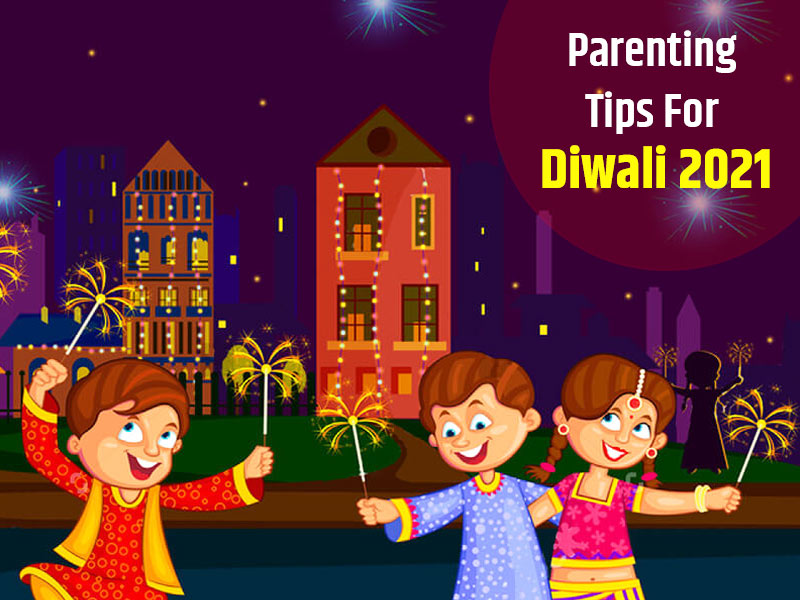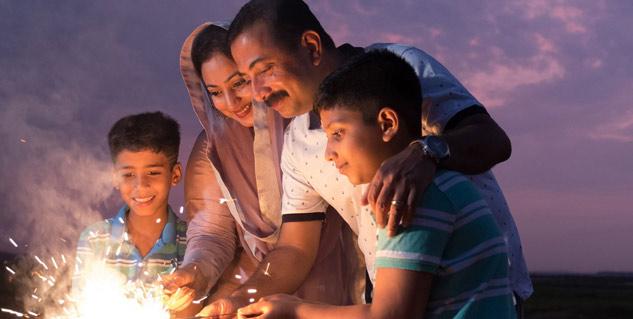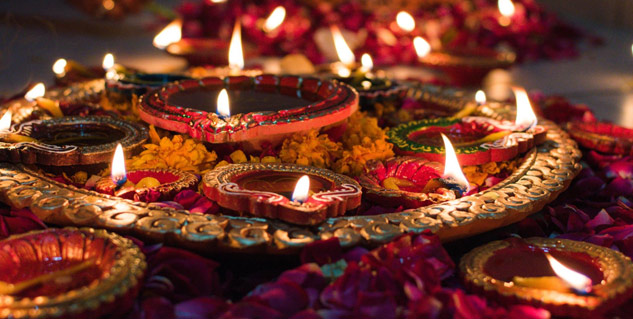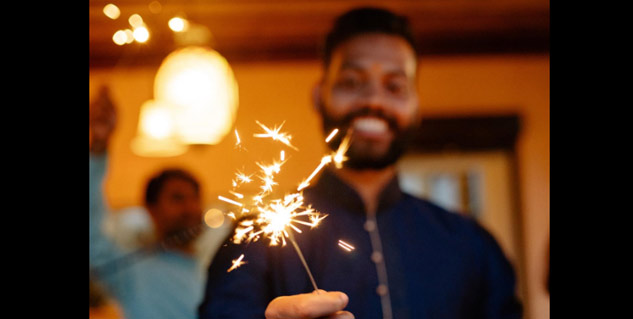
With preparations getting started for this diwali, it is hard to keep up with all the work and kids health. However as diwali approaches, there are various points that need to considered in order to make your diwali fruitful. Children enjoy as well as celebrate this festival with utmost excitement and joy; therefore in order to maintain its energy going, you need to ensure that they are equally safe and responsible. Diwali means having different sweets, lamps, crackers which can excite children to use and play with them, here are few tips you can follow in order to maintain good health and safety of your kids.
Table of Content:-
With Inputs from Paediatrician Dr. Anshul Mehta from Ivory Hospital, Greater Noida
Simple Tips to take care of your kids this diwali
1. Do not leave kids to roam without supervision
Children especially below the age of 3 years tend to pick up things and put them in their mouth or try to experiment different things from them. During diwali, there may be crackers, candles, oil lamps, lighting and many such things which may harm the children if they are not supervised carefully. Try to make them understand and prevent them from touching fireworks and scented candles as they can put their fingers in eyes and other parts which can cause health problems.

2. Burn crackers with precaution
It is advised that you should be there while burning crackers with your children. If you are giving a simple fooljhari in their hands, then ensure you hold their hands so that it does not slip or does not come too close. Ask them to maintain a safe distance from big fireworks, rockets, and diwali bombs etc.
3. Lighting Oil Lamps with Care
Even though you may think oil lamps are safe, they are not that safe for kids. If there are burning oil lamps in the passage, near curtains or at a place that is frequently visited by children, then it can be dangerous. This is because children may not be able to maintain safe distance from the lamps or spill the lamp on some fabric which could lead to fire. Even electrical lighting should be well taped and laminated for precaution and safety.

4. Keep limited sweets and food items on the show
This means to keep the extra sweets and food items away from the kids. This is important in diwali specially because there is so tempting dishes to eat that your child may over eat or have unnecessary calories which might affect health of the children. Also food which is cooked in diwali is also high in calories and could posses risk of increased cholesterol levels in the body. Many children face digestive problems and irritated bowel movements after diwali because of consumption of excess sweets and food items.
5. Keep a bucket of water in handy
To prevent any unwanted happening, it is always better to keep a bucket of water ready on the diwali. This is because we have noticed a number of cases where children or adults get burns while bursting crackers or because of oil lamps, etc. Keeping that bucket of water can prevent serious burns or problems which could posses threat to health.
6. Ensure proper clothing
Many parents do not give attention to the fabric of cloth for their kids just going for the fancy items to wear. However, if the fabric is not suitable or skin friendly them try to avoid them. Also make sure that you make your kids and children wear clothes that are not too baggy. The reason behind this is that when they burn crackers or light up the oil lamps, they do not make their dress come in contact with the fire, which may cause mishaps. Therefore even if you want your children to wear fancy lehnga and kurta pajama, it’s alright, but ask them to change to some tight-fitting clothes before burning crackers.
7. Keep the surroundings in check
Children can be notorious and they tend to throw or leave different things at the bay. Hence it becomes important to check that everything is at its place. It is important to keep crackers, lighting and flammable obstacles away from children at most times. The area where all these diwali items are kept need to be in a airy and safe environment.
Also Read- Diwali 2021: First Aid Essentials That Should Be A Part Of Your Diwali Kit
8. Sensitivity to Noise and Smoke
Diwali is celebrated by burning crackers by majority of people, burning of crackers produce loud noise and smoke which can be harmful for kids health. Ears of children are more sensitive than adults and they may not be able to bear those loud sounds for very long, it is advised to put a cotton ball in their ears to avoid adverse affect on their ears.

Another important factor is smoke, burning of lamps, crackers and other flammable items produce smoke, which if took in large amount can affect the health of children in many ways. It may cause nausea, headache, risk of asthma and lung infection in some cases. Therefore it is best to keep your children at a optimal distance and minimise their exposure to smoke and loud sound.
9. Do not re-burn crackers
First and foremost, do not let kids carry crackers with them, you need to place them. If the cracker does not burn in the first attempt, do not try to burn it again, especially not by kids. There could be chances of explosion of cracker which may burn your skin. Do not let your kids play with crackers, nor do you take risk as they may get motivated to do the same.
Also Read- Safety Protocols You Should Follow To Ward Off COVID-19 This Festive Season
10. Wear Good Sensible footwear
Make sure that your children are wearing the right footwear during diwali. Children do not know to tie their laces in many cases which might cause problems. Make sure the footwear does not have any flowing laces and attachments which may run around and cause threats to the child. Also it is better to make them wear comfortable footwear rather than fancy uncomfortable ones; this will increase their energy and also prevent skin problems in feet.
Picture Credits- Pixabay.com
Also watch this video
How we keep this article up to date:
We work with experts and keep a close eye on the latest in health and wellness. Whenever there is a new research or helpful information, we update our articles with accurate and useful advice.
Current Version
